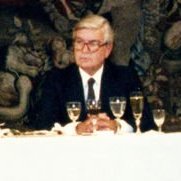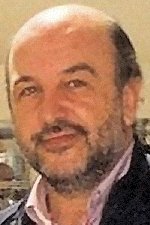
The Spanish Socialist Workers' Party is a social-democratic political party in Spain. The PSOE has been in government longer than any other political party in modern democratic Spain: from 1982 to 1996 under Felipe González, 2004 to 2011 under José Luis Rodríguez Zapatero, and since 2018 under Pedro Sánchez.

Felipe González Márquez is a Spanish lawyer, professor, and politician, who was the Secretary-General of the Spanish Socialist Workers' Party (PSOE) from 1974 to 1997, and the 3rd Prime Minister of Spain since the restoration of democracy, from 1982 to 1996. He remains the longest-serving Prime Minister of Spain to be freely elected.

The 1996 Spanish general election was held on Sunday, 3 March 1996, to elect the 6th Cortes Generales of the Kingdom of Spain. All 350 seats in the Congress of Deputies were up for election, as well as 208 of 257 seats in the Senate.

Ivan Stepanovich Silayev was a Soviet and Russian politician. He served as Prime Minister of the Soviet Union through the offices of chairman of the Committee on the Operational Management of the Soviet economy and chairman of the Inter-republican Economic Committee. Responsible for overseeing the economy of the Soviet Union during the late Gorbachev era, he was the last head of government of the Soviet Union, succeeding Valentin Pavlov.

Mercedes Cabrera Calvo-Sotelo, GCIH is a Spanish politician, political scientist, historian, and minister. She is also niece of Leopoldo Calvo-Sotelo Bustelo, former prime minister and of former foreign minister Fernando Morán Lopez and grandniece of the physicist Blas Cabrera Felipe.

José Blanco López, also known as Pepe Blanco, is a Spanish socialist politician. He was the deputy general of the Spanish Socialist Workers' Party (PSOE) and was the Minister of Public Works and Transport from 2009 to 2011.
Tatsuo Murayama was a Japanese politician who was a member of the Liberal Democratic Party (LDP) and finance minister for two times.

Juan Alberto Belloch is a Spanish judge and socialist politician, who served in different cabinet posts. He served as the mayor of Zaragoza between June 2003 and 13 June 2015.

Julián García Vargas is a Spanish economist and socialist politician who served in different cabinets of Spain.

Miguel Boyer was a Spanish economist and politician, who served as minister of economy, treasury and commerce from 1982 to 1985.

Fernando Morán was a Spanish diplomat and politician who served as minister of foreign affairs from 1982 to 1985 in the first government of Felipe González. After completing his studies in Madrid, Paris and London, Morán pursued a career as a diplomat. A member of the Group of Salamanca around Enrique Tierno Galván, in 1967 he was a co-founder of the Socialist Party of the Interior, that would become the People's Socialist Party in 1974.

José Barrionuevo is a Spanish politician. He was the minister of interior from 1982 to 1988. He was jailed from 1998 to 2001 due to his involvement in a dirty war against ETA members.

Claudio Aranzadi is a Spanish engineer, businessman and politician. He served as industry minister from 1988 to 1993.

José Luis Corcuera is a Spanish politician who served as interior minister of Spain from 1988 to 1993.

Matilde Fernández is a Spanish social feminist and politician who served as minister of social affairs of Spain from 1988 to 1993.

The Party of Labor and Employment–Ruiz-Mateos Group, better known as Ruiz-Mateos Group, was a Spanish political party founded by businessman José María Ruiz-Mateos following the collapse and expropriation of his Rumasa holding company. It was enrolled in the register of political parties with the Spanish Ministry of the Interior on August 30, 1989.

Mariano Rubio was a Spanish economist who served as the governor of Bank of Spain in the period 1984–1992. He involved in a scandal known as Ibercorp incident and was forced to resign from the office.

The governments of Felipe González (1982-1996) occurred during the second period of the reign of Juan Carlos I of Spain.

The 34th Federal Congress of the Spanish Socialist Workers' Party was held in Madrid from 20 to 22 June 1997, to renovate the governing bodies of the Spanish Socialist Workers' Party (PSOE) and establish the party's main lines of action and strategy for the next leadership term. It saw Joaquín Almunia being elected unopposed as party secretary-general, with 74.7% of the delegate vote in the congress and 25.3% of blank ballots (231), following Felipe González's surprise announce in the congress opening that he would not be seeking re-election as party leader.

The 33rd Federal Congress of the Spanish Socialist Workers' Party was held in Madrid from 18 to 20 March 1994, to renovate the governing bodies of the Spanish Socialist Workers' Party (PSOE) and establish the party's main lines of action and strategy for the next leadership term.



















